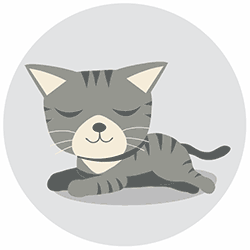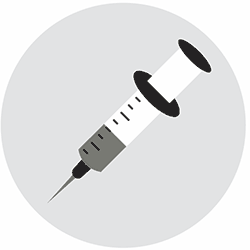Montgomery Veterinary Associates recommends a series of 3 wellness exams 3-4 weeks apart to give your puppy or kitten the best start in their new life with you. This can, of course, vary depending on your pet’s age, but regardless, it is ideal to bring them in to see us as soon as possible following adoption!
During your pet’s series of exams, we’ll check them from nose to tail, run blood work and fecal testing to check for illness and parasites, administer vaccinations, and answer any questions you have about your pet’s care. As time progresses, we’ll want to touch base with your pet to make sure they’re growing up healthy and receiving the protection they need against harmful viruses.
Welcoming a new pet into your home is exciting and rewarding, but it can also be challenging. Our team is here to help you with everything you need to support your pet and ensure they grow up healthy. See below for what to expect from your pet’s initial visits with us!
EXAM ONE
Your puppy or kitten will see us for their first exam. This appointment is typically longer than the average wellness visit, because we want to spend as much time as possible answering your questions and preparing your pet for a healthy life. A newly-adopted puppy or kitten should see their vet at around 8 weeks of age, but this can vary.
EXAM TWO
The second exam is a recheck as we discuss any changes from your pet’s last appointment, including growth and treatment for worms or other health issues common to puppies and kittens. This exam typically takes place at 12 weeks old.
EXAM THREE
Your pet should come in for their third exam at around 16 weeks of age. Your vet will reevaluate your pet’s health and condition, finalize their initial vaccination series, and discuss next steps for helping your pet grow into a healthy adult.
Puppy & Kitten Vaccines We Recommend
Below are the vaccines we recommend for puppies and kittens.
Puppy Vaccines – Exam 1
- DA2PP (Distemper, Adenovirus, Parvovirus and Parainfluenza)
- Deworming
Puppy Vaccines – Exam 2
- DA2PP (Distemper, Adenovirus, Parvovirus and Parainfluenza)
- Lepto
- Bordetella
- Final Deworming
Puppy Vaccines – Exam 3
- DA2PP (Distemper, Adenovirus, Parvovirus and Parainfluenza)
- Lepto
- Bordetella
- Rabies
Kitten Vaccines – Exam 1
- FVRCP (Feline Viral Rhinotrachetitis, Calici virus, Panleukopenia)
- Deworming
Kitten Vaccines – Exam 2
- FVRCP (Feline Viral Rhinotrachetitis, Calici virus, Panleukopenia)
- Deworming
Kitten Vaccines – Exam 3
- FVRCP (Feline Viral Rhinotrachetitis, Calici virus, Panleukopenia)
- FeLV (Feline Leukemia Virus)
- Rabies

Spaying and Neutering
for Puppies and Kittens
During your pet’s final puppy/kitten exam, we will discuss the importance of spay/neuter surgery and what course of action is best for your pet’s needs. Most dogs and cats benefit from being spayed/neutered at a certain time and can potentially live longer as a result.
HOW DO I SET A POTTY TRAINING SCHEDULE?
- First thing in the morning
- Last thing at night
- After spending time in a crate
- Upon waking up from a nap
- After eating or drinking
- Time between potty brakes
should be no more than 2-4 hours
HOW DO I CRATE TRAIN MY PUPPY?
- Dogs like clean “home” areas and are less likely to have accidents
- Place crate near exterior door for quick relief
- The crate should be big enough for your puppy to stand up, turn around, and lay down
WHEN SHOULD I REINFORCE GOOD BEHAVIOR?
- Don’t scold your puppy for having an accident
- Praise them for doing the right thing
- Reward them with treats, pats, and attention
How do I get my puppy to stop bad behavior?
WHAT CAN MY PUPPY CHEW ON?
- Chewing is a calming mechanism for puppies
- Keep chewing toys around the house; when they start to chew on toys instead of household objects, give them praise
HOW DO I STOP MY PUPPY FROM BARKING?
- Scolding your puppy when they bark can make it worse; instead, ignore barking and praise quiet
- Training your dog to sit helps them fight impulsive barking when they want something
HOW DO I STOP MY PUPPY FROM BEGGING AT THE TABLE?
- Feed them first before you eat
- Create a cozy “go-to” spot near the table where they can be comfortable
- Praise them with treats when they don’t beg
How do I feed my puppy?
HOW OFTEN DO I FEED MY PUPPY?
- 6-12 weeks: 4x a day
- 3-6 months: 3x a day
- 6-12 months: 2x a day
- After a year: 2 half portions a day
- Watch your puppy to gauge if they are eating healthy
WHAT FOOD SHOULD I FEED MY PUPPY?
- Look for AAFCO guidelines
- Look for age and health specific formulas
- Ask your vet for tailored recommendations
WHAT ARE HARMFUL FOODS FOR PUPPIES?
Dairy, chocolate, grapes, and sugary foods, snacks, or desserts
WHAT THINGS SHOULD I BUY FOR A KITTEN?
- Scratch posts (helps preserve furniture!)
- Litter boxes, cat carriers, and food and water bowls
- Stain and odor remover
WHAT SHOULD I MOVE OUT OF THE WAY?
- Toxic plants
- Cleaners and sprays
- Any dog food that might be in the house
HOW CAN MY CAT BE COMFORTABLE?
- Bed and blanket
- Small, cozy space
- Grooming supplies
- Pheromone products
How should I play with my kitten?
HOW DO I PLAY SAFELY WITH MY KITTEN?
- Use balls, jingles, anything on a string, and cotton chew toys
- Avoid “play” with your hands to avoid injury when full grown
WHAT ARE THE BENEFITS OF PLAYING WITH YOUR KITTEN?
- Strengthens your bond with your kitten
- Allows them to release energy that could lead to damage
- Builds trust and comfort for them within a new home
HOW OFTEN SHOULD I PLAY WITH MY KITTEN?
- 20+ minutes of play per day
- Set aside at least two times a day preferably early in the morning and late at night
HOW DO I FEED MY KITTEN?
HOW OFTEN SHOULD I FEED MY KITTEN?
- Dry food only: leave available at all times
- Wet food only: feed at least four times a day
- Combo: feed wet food twice a day and leave dry food available
WHAT SHOULD I FEED MY KITTEN?
- Look for AAFCO guidelines
- Look for age and health specific formulas
- Ask your vet for tailored recommendations
- Raw meats, eggs, raw fish
- Grapes, chocolate, and dairy






